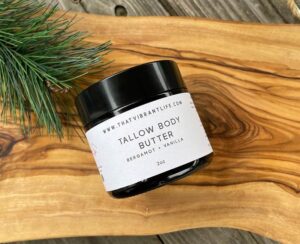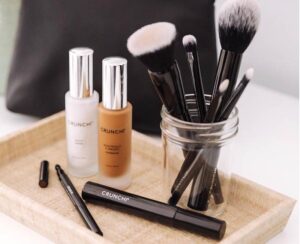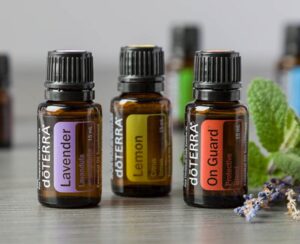Okay, so there’s nothing magic about them…but seriously. They are IMPORTANT! Listen up!!
What exactly are electrolytes? I’m sure most of us are at least vaguely aware. I mean who doesn’t notice the electrolyte infused crap drinks at the store? You can even get electrolyte enhanced water. So, we’re paying attention…but perhaps not in the best way. Here’s some more insight:
Electrolytes are ionic solutions that are essential for basic functions. They are in our bodily fluids {urine, blood, sweat…}. These minerals occur in our bodies in the forms of sodium, potassium, bicarbonate, chloride, calcium, and phosphates. This is a little nerdy/sciency…but it’s important to understand this stuff because it will seriously affect how you feel. These little guys have an electric charge {hence the name}. According to Dr. Josh Axe once they dissolve, they separate in to positive and negative charged ions and our nerves react to this process! Hello. Are you already getting that these things are important? Our nerves talk to each other and send signals based on the messages they receive from these chemical exchanges.
So. Really. What does this all mean?
Here’s a little snap shot for you from Dr. Josh Axe:
Some of the major roles that electrolytes have within the body include:
- Calcium: helping with muscle contractions, nerve signaling, blood clotting, cell division, and forming/maintaining bones and teeth
- Potassium: helping keep blood pressure levels stable, regulating heart contractions, helping with muscle functions
- Magnesium: needed for muscle contractions, proper heart rhythms, nerve functioning, bone-building and strength, reducing anxiety, digestion, and keeping a stable protein-fluid balance
- Sodium: helps maintain fluid balance, needed for muscle contractions, and helps with nerve signaling
- Chloride: maintains fluid balance
We typically pay attention to our multi-vitamins and macros more than we do electrolytes. In fact, I’m not sure I really hear people say much about it when they are talking about their own health. I’ve experienced some things that I’ve realized were the result of not watching my electrolytes. For a time I was having heart palpitations that really scared me. Not surprisingly, this would pretty much happen only when I was running. You know… when I’m depleting my body of electrolytes. I like to run hard to, so it really all adds up.
I have also struggled with {and I have written about it} adrenal fatigue. It is crazy how much electrolytes help us maintain a good solid level of energy, clarity and vibrancy. With adrenal fatigue in particular certain things are typical such as insomnia and fatigue. A lack of electrolytes can exacerbate this and in turn, making sure you get enough can be paramount in getting your body back in balance.
Here are some common symptoms of electrolyte imbalance {from dr.axe.com}:
- Muscle aches, spasms, twitches and weakness
- Restlessness
- Anxiety
- Frequent headaches
- Feeling very thirsty
- Insomnia
- Fever
- Heart palpitations or irregular heartbeats
- Digestive issues like cramps, constipation or diarrhea
- Confusion and trouble concentrating
- Bone disorders
- Joint pain
- Blood pressure changes
- Changes in appetite or body weight
- Fatigue (including chronic fatigue syndrome)
- Numbness and pain in joints
- Dizziness, especially when standing up suddenly
I cannot write about this subject without touching on the huge disservice that has been done to us regarding SALT. We have been told for years that salt {along with fat} is EVIL. We’ve been eating taste free, salt free, fat free foods for years and getting SICKER! What happened is that people blamed sodium for things like high blood pressure when there really wasn’t solid evidence to back it up. In fact, at a closer look it became more evident that people who had good results, such as lower blood pressure, as a result of lower sodium levels in their diet, were really getting results from less processed foods in general. Sugar and foods that are void of nutrients are a problem that deserve the kind of attention salt was getting. If you are eating all sorts of highly processed foods with little to no nutrients, you will be causing all sorts of inflammation in your body and stripping it of the essentials it needs to be able to heal itself and function properly. If you would like to know more about the salt conundrum, a great place to visit is Chris Kresser’s website and series on salt.
Another important thing to note: if you have regular table salt sitting in your kitchen, throw it out! Table salt is highly processed, minerals are removed and usually there is an additive used to prevent clumping. Gross. Sea salt, on the other hand, is produced through evaporation and is far less processed typically. You will get more trace minerals and elements and it will be more flavorful. Himalayan Pink Salt has an enormous amount of minerals… a few of which happen to be: calcium, magnesium, and potassium.
If you happen to be following the ketogenic protocol, electrolytes are even more critical for you to pay attention to. As you enter into ketosis, your kidneys shift from retaining water and sodium to releasing them. As your sodium level decreases, your kidneys will also get rid of potassium in effort to keep a sodium-potassium equilibrium. This is when you get headaches, brain fog, dizziness, irritability… so, take note! This is just as important as paying attention to how much fat/protein/carbs you’re eating! If you ignore your electrolytes you can end up feeling like a pile of lethargic poo. That is not the goal and just does not need to happen.
Where to get electrolytes:
Sodium is obvious. I’ve already touched on sea salt & Himalayan salt. Don’t be afraid to use it! Dump the old “salt is evil” messages! I will add sea salt, lemon juice and a good quality lemon essential oil with to a big glass of ice water, especially after a hard run. LOVE it! Recovery is amazing with this!
Potassium: you can up your potassium levels with foods such as: salmon, avocado, broccoli, spinach, coconut water {make sure it doesn’t have added sugar}
Magnesium: Spinach, pumpkin seeds, yogurt or kefir, almonds, chard. But I would recommend a supplement. I love Natural Calm by Natural Vitality. You can find it at your local health food store or order on Amazon.
If you are really struggling and want to know just where your body is with your electrolytes and what you need to specifically pay attention to, I HIGHLY RECOMMEND seeing a holistic/functional practitioner. So many main stream medical doctors are not up on current science regarding such topics {especially things like salt}. Rather than get put on some sort of medication, dig a little deeper and see what you can do naturally!



